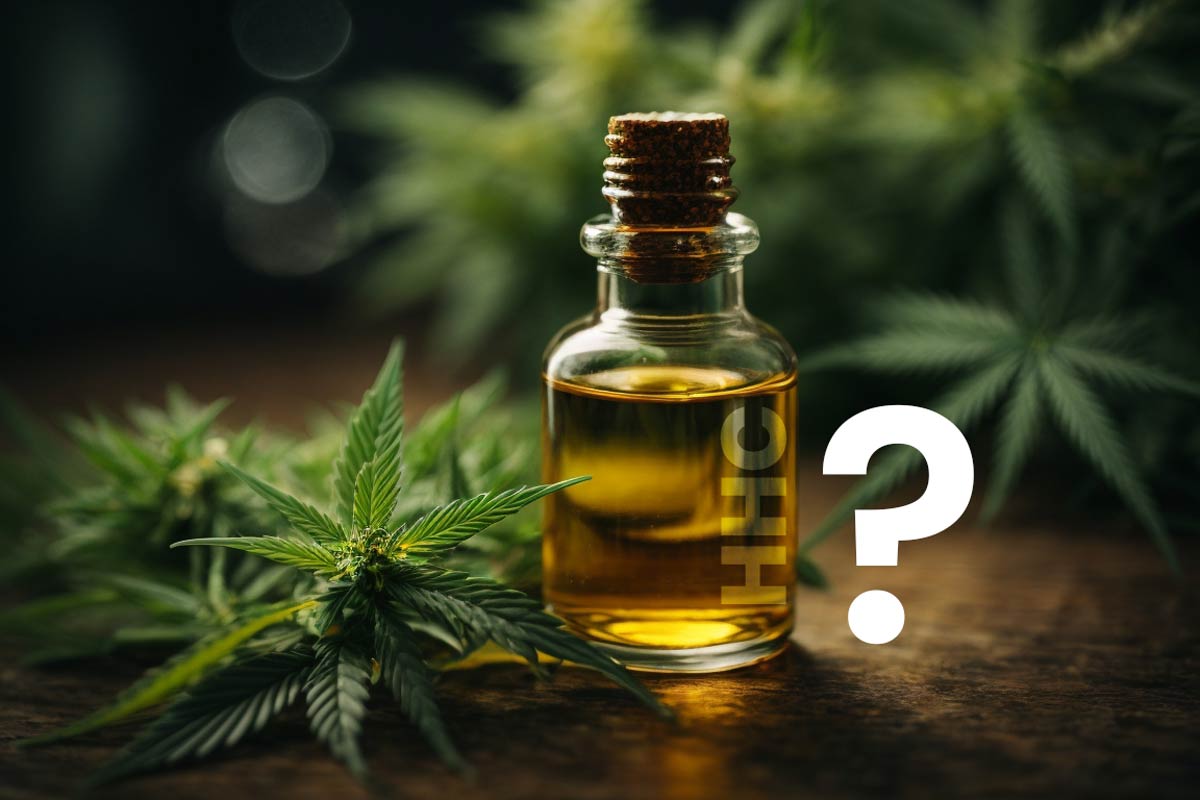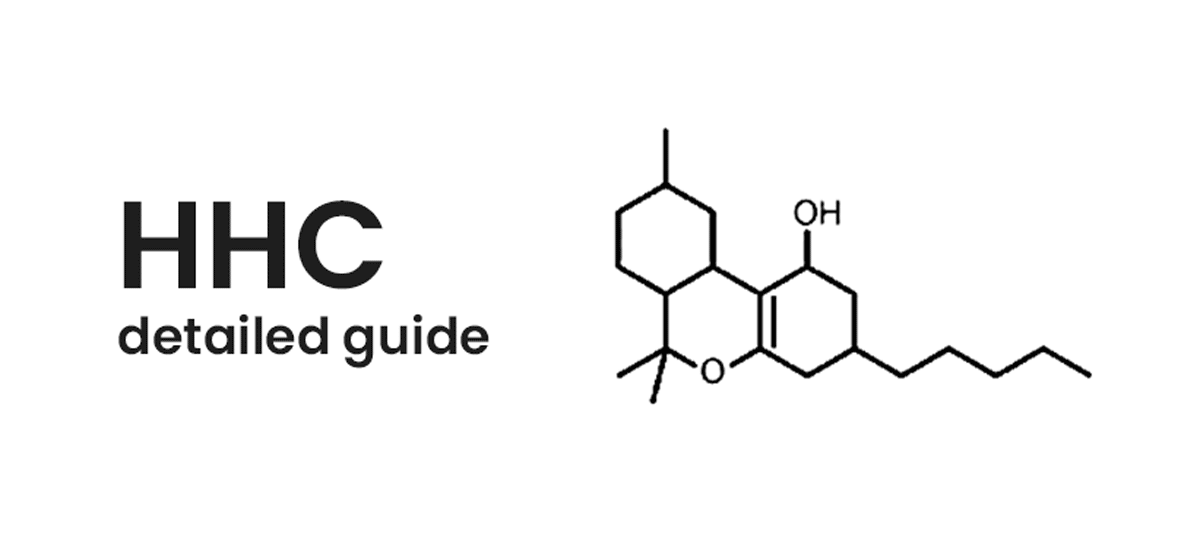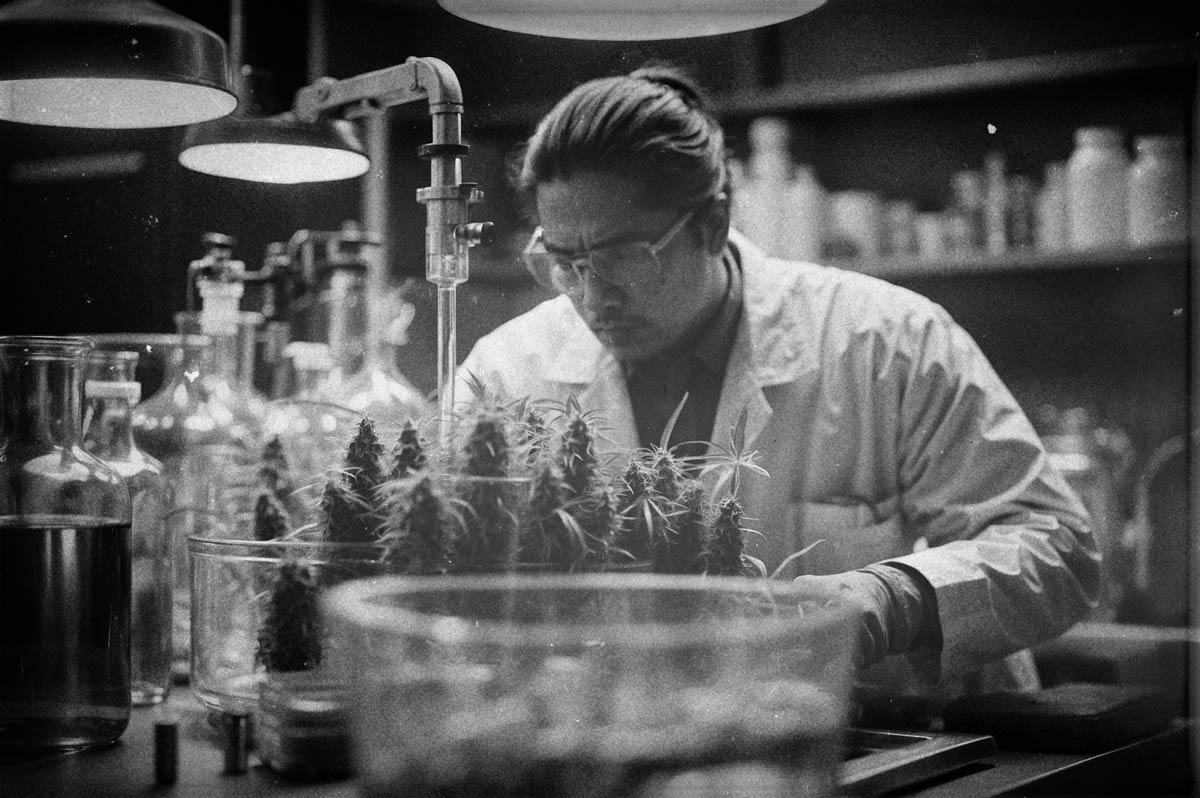Please confirm that you are 21 years of age or older
Please confirm that you are 21 years of age or older
By entering you accept our terms and conditions and our privacy policy.
In recent years, the legal cannabinoid market has seen an explosion of interest in new and exciting compounds derived from cannabis plants. One of these is hexahydrocannabinol, commonly known as HHC. As research into the numerous cannabinoids found in cannabis continues, minor cannabinoids are emerging as potentially valuable alternatives to the major compounds THC and CBD. But what exactly is HHC, and how does it differ from other popular cannabinoids?
In short, HHC is a chemical compound found in small amounts in hemp. It is related to THC, the main active compound in marijuana, but it is not as strong.



What exactly is hexahydrocannabinol?
HHC, short for hexahydrocannabinol, is a hydrogenated form of THC. It is produced in a lab by adding hydrogen atoms to the THC molecule, a process known as hydrogenation. This alters the chemical structure of THC slightly, making it more stable.
The compound occurs naturally in tiny traces in cannabis plants. However, most it used recreationally or medicinally comes from hemp-derived CBD that has undergone hydrogenation. This semi-synthetic production process allows the cannabinoid to be made affordably and in quantities suitable for commercial use.
Compared to THC, HHC has a similar molecular structure. But it lacks double bonds in its cyclohexene ring which alters its binding affinity. This gives the compoud somewhat different effects and properties than THC.

Hexahydrocannabinol was first synthesized in 1944 by American organic chemist. He created it by adding hydrogen atoms to the THC molecule, developing a process to hydrogenate THC. This discovery introduced HHC as a new cannabinoid, though Adams did not explore its pharmacological effects.
For decades, the compound remained an obscure cannabinoid rarely mentioned outside of chemistry papers. But renewed interest in minor cannabis compounds has led to new production methods for HHC, making this previously unknown cannabinoid available for wide use.
The most common method for manufacturing HHC involves hydrogenating CBD isolate under high heat and pressure in the presence of a catalyst like platinum, palladium, or nickel. This forces hydrogen atoms to bond with the CBD molecules, converting it into HHC.
After hydrogenation is complete, the product is filtered thoroughly using techniques like chromatography to remove all traces of metals. When consumed, any residual catalyst particles could be toxic, so this purification is a crucial final step.
The resulting HHC distillate can then be infused into vape juices, tinctures, edibles or other products as desired. By hydrogenating inexpensive CBD isolate, producers can generate purity HHC oil affordably.

Early research into HHC is limited but shows promising results. In one rodent study, HHC demonstrated powerful pain-relieving properties. And some HHC analogs have exhibited potential to inhibit cancer cell growth. More research is still needed however to fully understand HHC’s therapeutic potential benefits.
Anecdotally, HHC users report similar effects to THC including:
However, most describe the high as milder than delta-9 THC, comparing it to delta-8. Since HHC binds to CB1 receptors like THC, it triggers the same general responses, just somewhat reduced in intensity.
Let’s dive into the comparison to find out the differences and similarities with other famous compounds.
Currently very little formal research exists into the safety profile and side effects of HHC. However, based on user reports, the adverse effects mirror those of THC and may include:
Caution is advised around taking high doses, as overconsumption of THC can lead to extremely unpleasant experiences. Those new to cannabinoids should start with low doses and increase slowly as tolerance builds.
The 2018 Farm Bill federally legalized hemp and all hemp derivatives, as long as they contain less than 0.3% delta-9 THC. Since it can be derived from legal hemp, many consider it to be legal on a federal level.
However, some states have banned or restricted the sale of synthetically produced cannabinoids, putting it in a legal grey area in certain jurisdictions. It is wise to check your local laws before purchasing such products. The DEA considers synthetic cannabinoids illegal, though there is debate around whether semi-synthetic HHC truly falls into this category.
Overall the HHC legal landscape for the cannabinoid is complex, much like that of delta-8 THC. But in most places where hemp CBD is legal, HHC occupies a similar status. However consumers should exercise appropriate caution and research laws in their state.
Learn more >
Several factors are driving the growing popularity of HHC in recent years:
In an era of cannabis connoisseurship and boundless experimentation, fascinating cannabinoids have found an eager market ready to sample new highs. While HHC remains understudied, anecdotal hype is driving intrigue.
Also, you may like to read more about HHC vs THC >

A connoisseur of cannabis creativity and true contemplation with more than 20 years of experience, Chris extracts deep thoughts from getting lightly baked and shares his wandering mind. He blends cuisine and cannabis culture into nutritious, delicious recipes and insights for other hemp lovers.
The statements on this blog are not intended to diagnose, cure, treat or prevent any disease. FDA has not evaluated statements contained within the blog. Information on this website or in any materials or communications from Inheal is for educational/informational purposes only and is not a substitute for medical advice, diagnosis, or treatment. Please consult your healthcare provider before making any healthcare decisions, correct dosage or for guidance about a specific medical condition.

Disclaimer: We work diligently to make sure all product information on our website is correct. The actual product packaging and materials may contain different information than what’s listed on our website. Please make sure to read labels, warnings, and directions on the packaging itself before using or consuming a product. If you have any questions about a product, please contact customer service. Content on this site is for reference purposes only and isn’t intended to replace advice from a physician, pharmacist, or other licensed health-care professional.
Inheal products are made with uniquely sourced, naturally occurring cannabinoids from hemp which is grown in the US.
Statements on this site related to inheal products have not been evaluated by the FDA. This website is not intended to diagnose, treat, cure or prevent any disease. Results from using these products may vary.
In December 2018, the 2018 Farm Bill became law by removing hemp from the federal list of controlled substances and classifying it as an agricultural commodity. All inheal products are meant for adults only.
California Prop 65 Warning
This product contains a chemical (delta-9 tetrahydrocannabinol) known to the state of California to cause birth defects or other reproductive harm. For more information, go to www.p65warnings.ca.gov